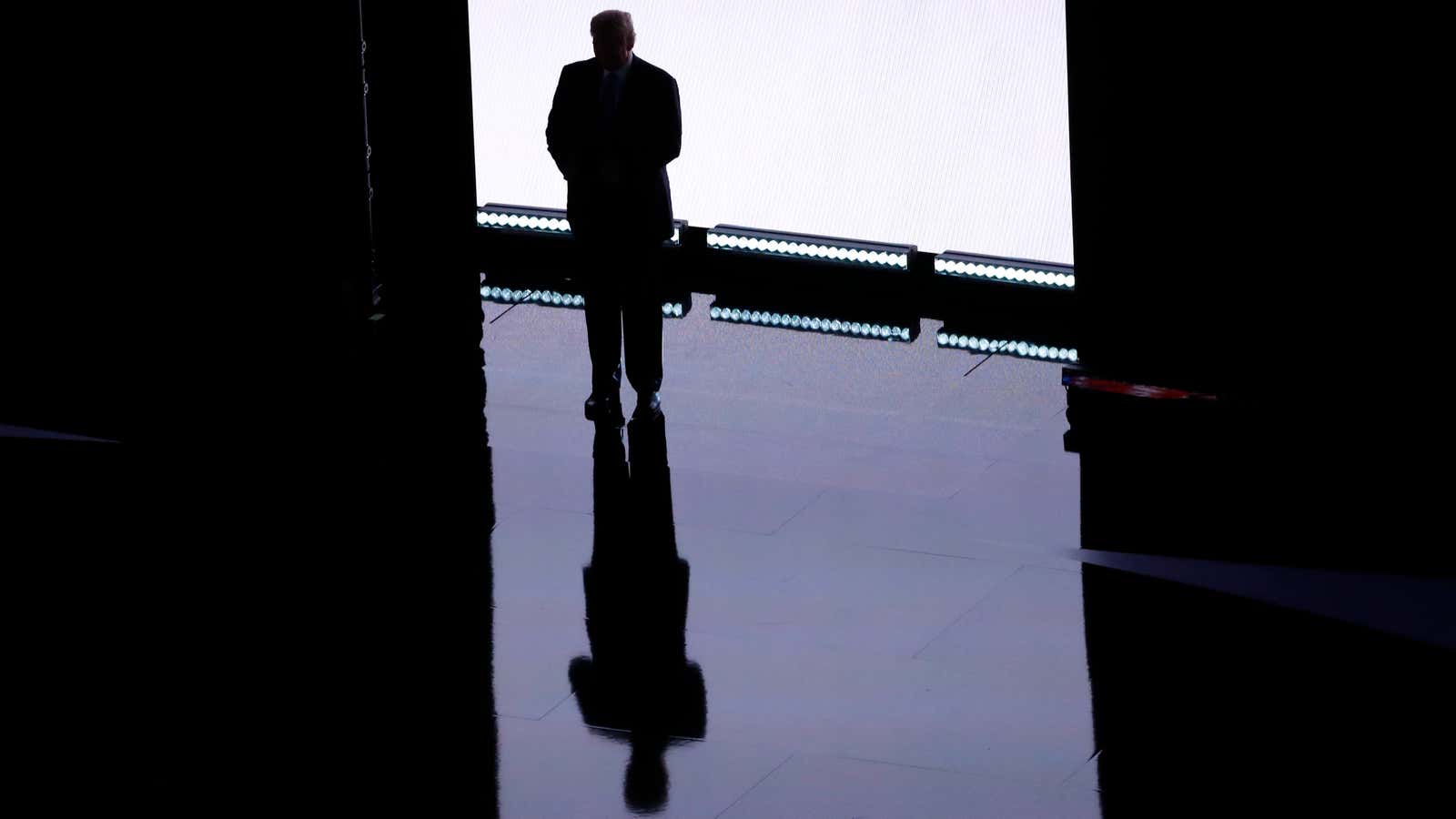Donald Trump defies expectations and predictions. Against all odds and most bets, he is the US president-elect.
So it should come as no surprise that Trump’s victory speech, delivered in the wee morning hours at the Hilton hotel in Manhattan, was muted, conciliatory, and positive; utterly free of the intense negative language that so riled supporters and opponents throughout the campaign. Gone were the swamps to drain, replaced with “an American dream to renew.”
Trump called calmly for national unity. He acknowledged Hillary Clinton’s concession and work, pledged to be a president to all Americans, promised that the forgotten “will be forgotten no longer” and that “we will rebuild our infrastructure.” It practically sounded like he’s planning a new New Deal, with projects, jobs, and money for all…plus a dash of international good will. “We will deal fairly with everyone, all people, all nations.”
David Clementson, an Ohio State University linguist who studies emotional intensity in presidential speeches, told Quartz to expect this on Nov. 6. Although the campaign rhetoric has been exceptionally intense and negative, Clementson said, Trump is flexible about what he’ll say and has positively upended expectations before, such as after he lost the Iowa caucuses to Ted Cruz in February. He was gracious, conciliatory, calm and congratulatory, taking a long view as he is wont to do on occasion.
His win was such an occasion, one that called for a deviation from what has become the new normal, negativity. That other angry Trump seen before this morning was just giving the people what they wanted, according to Clementson—intensity and a reflection of their own desperation.
Clementson researches presidential candidate speech language, its intensity or how much candidate vocabulary varies from neutral language and influences perceptions of speaker credibility. The linguist manipulates speech language and plays the oratory for subjects, providing them with various economic scenarios for context. They respond with their emotions. His research shows that when a candidate reflects the intense emotions that people feel with strong language, the politician is perceived as trustworthy and presidential—especially when times are economically tough. The less economically or ideologically stressed are turned off by intense words, sensing them as unbalanced and untrustworthy.
Clementson believes Trump responded to what he sensed in the electorate, and ran with what was sought, and the election results bear this out. Take the phrase “drain the swamp” for example. Trump resisted it at first but when it proved popular anyway, he embraced it, using it to excite crowds at rallies by intoning the phrase slowly. “Drain. The. Swamp. And the crowds would go wild chanting it,” the linguist said. But from his professional perspective, referring to the government as a swamp in need of draining is highly deviant from the neutral vocabulary people seek in stable times, as well as a shocking characterization of the establishment by a presidential candidate.
Now Trump is the establishment, and a different kind of rhetoric is in order—unity, peace, prosperity, a thriving democracy. These words and more were offered in his victory speech.
The new president-elect once defended his language, saying, “I know words, I have the best words.” And indeed, Trump’s speech writers seemed to have picked the best of that bunch to claim his victory. Whether the president-elect means what he says or knows what he means remains to be seen.
George Orwell wrote in the 1946 essay Politics and the English Language that ”In the case of a word like democracy, not only is there no agreed definition, but the attempt to make one is resisted from all sides…Words of this kind are often used in a consciously dishonest way. That is, the person who uses them has his own private definition, but allows his hearer to think he means something quite different.”
The writer of 1984 wasn’t often wrong about politics. And there’s plenty of evidence that Trump will say what people want to hear when they want to hear it. But today, the world is hoping he defies Orwellian interpretations, as well as expectations.
